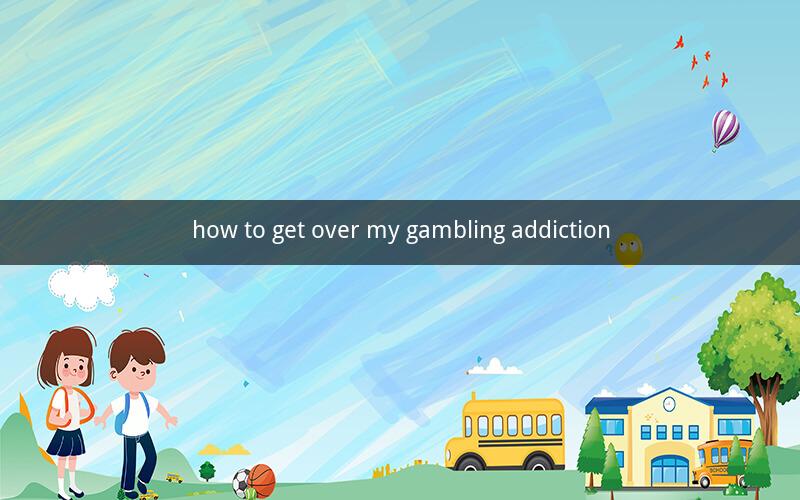
Contents
1. Understanding the Nature of Gambling Addiction
2. Recognizing the Signs of Gambling Addiction
3. The Psychological Impact of Gambling Addiction
4. The Physical Consequences of Gambling Addiction
5. Seeking Professional Help for Gambling Addiction
6. Self-Help Strategies for Overcoming Gambling Addiction
7. Building a Support System
8. Creating a Safe and Soothing Environment
9. Coping with Triggers and Urges
10. Maintaining Sobriety and Long-Term Recovery
1. Understanding the Nature of Gambling Addiction
Gambling addiction, also known as gambling disorder, is a complex condition characterized by the inability to control or stop gambling despite negative consequences. It is essential to understand that gambling addiction is a legitimate and treatable mental health disorder. Recognizing the nature of this addiction is the first step towards overcoming it.
2. Recognizing the Signs of Gambling Addiction
Identifying the signs of gambling addiction is crucial for early intervention and treatment. Common signs include:
- Spending increasing amounts of time and money on gambling activities
- Lying or hiding gambling behaviors from loved ones
- Borrowing money to finance gambling habits
- Experiencing mood swings, irritability, or depression
- Neglecting responsibilities at work, school, or home
- Continuously chasing losses
3. The Psychological Impact of Gambling Addiction
Gambling addiction can have severe psychological consequences, including:
- Low self-esteem
- Depression
- Anxiety
- Paranoia
- Mania
Understanding the psychological impact of gambling addiction can help individuals recognize the need for professional help and treatment.
4. The Physical Consequences of Gambling Addiction
Gambling addiction can also lead to physical health issues, such as:
- Heart disease
- High blood pressure
- Insomnia
- Nausea
- Stomach pain
Recognizing the physical consequences of gambling addiction can further motivate individuals to seek help and take action.
5. Seeking Professional Help for Gambling Addiction
Professional help is crucial for overcoming gambling addiction. Therapies such as cognitive-behavioral therapy (CBT), dialectical behavior therapy (DBT), and contingency management can help individuals develop coping skills and strategies to overcome their addiction.
6. Self-Help Strategies for Overcoming Gambling Addiction
In addition to professional help, self-help strategies can be effective in overcoming gambling addiction. These strategies include:
- Setting clear goals and boundaries
- Avoiding triggers and high-risk situations
- Finding alternative activities to fill the void left by gambling
- Learning to manage stress and anxiety
- Seeking support from friends, family, or support groups
7. Building a Support System
Building a support system is crucial for long-term recovery. This support system can include:
- Family members
- Friends
- Therapists
- Support groups
- Online communities
8. Creating a Safe and Soothing Environment
Creating a safe and soothing environment can help individuals manage triggers and maintain sobriety. This may include:
- Removing gambling-related items from the home
- Staying away from gambling venues
- Finding relaxing hobbies and activities
- Practicing mindfulness and meditation
9. Coping with Triggers and Urges
Triggers and urges are common challenges for individuals overcoming gambling addiction. Coping strategies include:
- Identifying and avoiding triggers
- Developing coping mechanisms for urges
- Practicing self-soothing techniques
- Seeking support from others
10. Maintaining Sobriety and Long-Term Recovery
Maintaining sobriety and long-term recovery is essential for a fulfilling life. Strategies for maintaining sobriety include:
- Staying connected to a support system
- Continuing therapy or counseling
- Celebrating milestones and successes
- Practicing self-care and self-compassion
10 Questions and Answers
1. What is the difference between gambling addiction and problem gambling?
- Gambling addiction is a chronic and progressive disorder characterized by an inability to control or stop gambling, while problem gambling is a less severe form of gambling-related issues that can still cause harm to an individual's life.
2. Can gambling addiction be cured?
- While there is no guaranteed cure for gambling addiction, it is a treatable condition. With proper treatment and support, individuals can overcome their addiction and lead a fulfilling life.
3. How can I tell if I have a gambling addiction?
- Signs of gambling addiction include spending increasing amounts of time and money on gambling, lying or hiding gambling behaviors, and experiencing negative consequences as a result of gambling.
4. Are there medications that can help treat gambling addiction?
- While there are no specific medications for gambling addiction, certain medications can help manage co-occurring conditions, such as depression or anxiety.
5. How long does it take to overcome gambling addiction?
- The duration of treatment and recovery can vary for each individual. Some may experience immediate improvement, while others may require ongoing support and treatment.
6. Can I recover from gambling addiction on my own?
- While it is possible to overcome gambling addiction on your own, seeking professional help and support from others can significantly improve your chances of long-term recovery.
7. Are support groups helpful for overcoming gambling addiction?
- Support groups, such as Gamblers Anonymous, can provide individuals with a sense of community, understanding, and encouragement throughout their recovery journey.
8. How can I prevent a relapse?
- Preventing a relapse involves identifying and avoiding triggers, developing coping mechanisms for urges, and staying connected to a support system.
9. Can gambling addiction affect my relationships?
- Yes, gambling addiction can significantly impact relationships, including family, friends, and romantic partners. Open communication and support from loved ones can help rebuild and strengthen these relationships.
10. Is it normal to feel anxious or depressed during recovery?
- Yes, it is normal to experience anxiety or depression during recovery. These feelings are a part of the healing process, and seeking professional help and support can help manage these emotions.